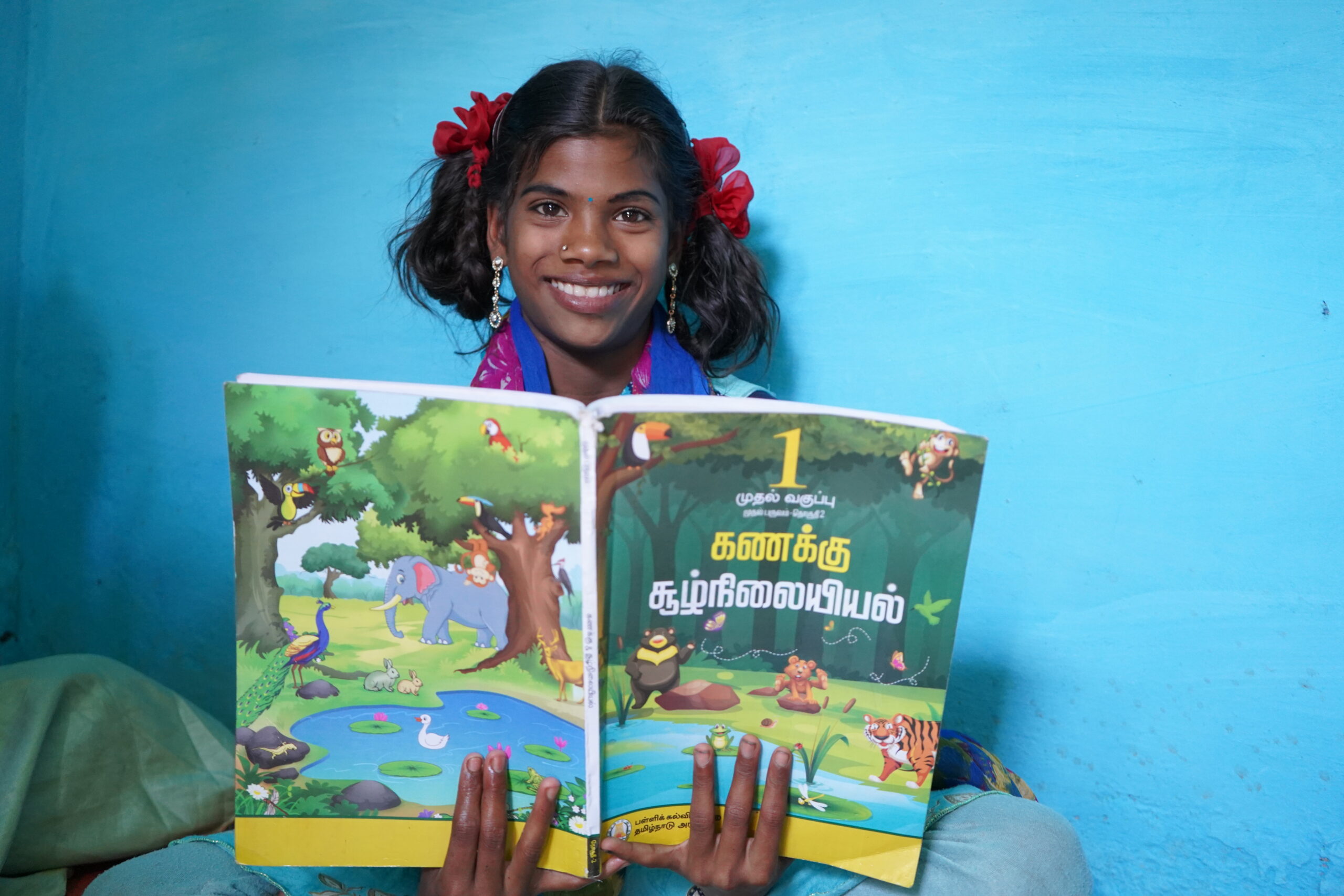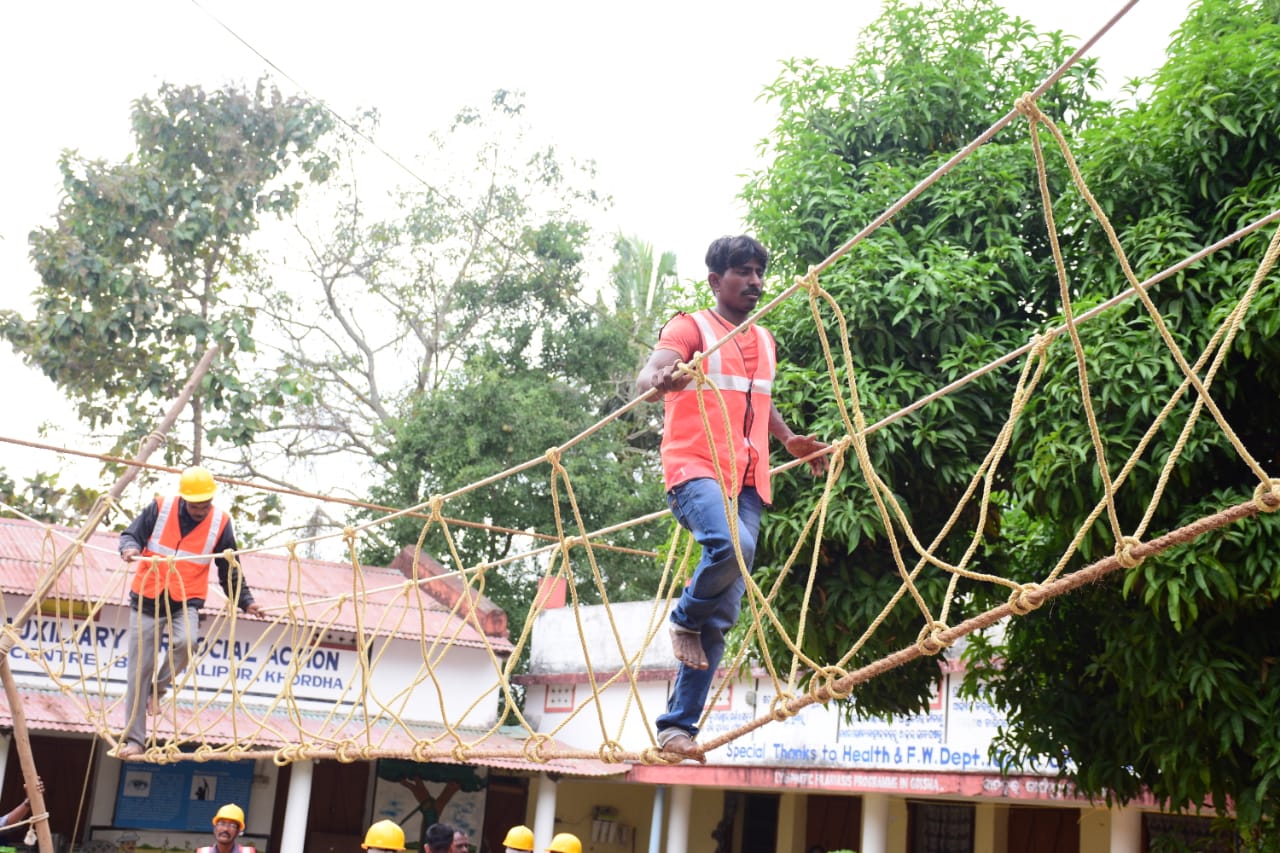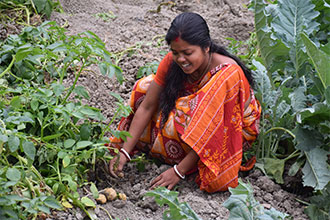CASA BLOGS

THE AGRO-TECH HAMLET
Change in the weather pattern had completely disturbed the cropping pattern but after installation of weather station, we get to know about weather behavior in advance, it helps in taking all possible measures to protect the crops.

By Md Mahfooz Alam
Intern – CASA Communications
When an automatic weather recording station was installed in a small hamlet Tipli of Uttarakhand, locals had no clue what technology had to do with farming. It took days, months for the farmers to realize the importance of the device. The weather station has brought back the lost confidence of farmers and they are motivated to engage in agriculture again.
Tipli has become an ideal village for agriculture; the model of Tipli can be replicated across the country. The farmers are no more scared of unpredictability of weather. They are trained to operate the weather station, now they practice farming in accordance with the collected data. One such example of technological revolution in agriculture is the middle-east country Israel. It must be inspiring for an Indian farmer to know how Israel, as a small country where half of the land is desert and the rest arid, improved their agricultural productivity manifold through the introduction of micro irrigation system of drip farming.
The rapid progress of Israel in agriculture can be credited to collaboration between scientists, extension services, farmers and agro-industries. These four essentials grouped together to modernize agriculture into an industry that is globally appreciated for its efficiency and productivity.
The development in Tipli is also been the result of close association between CASA, Krishi Vigyan Kendra (KVK), Agriculture University and local farmers. CASA taking the cue of weather station from Nepal, installed it in the village. With the involvement of above organizations, agriculture experts and scientist started visiting the place. They shared their expertise with the farmers and taught them how to deal with adverse climatic conditions. The farmers say, “We are also alerted with SMS from the meteorological department of KVK.”
Tipli, located on the high terrain has always been vulnerable to animals. The wild pigs and monkeys used to destroy the cultivated crops in the field. KVK introduced a small technology called micro-hydel. The instrument works on the principle of generating electricity from water. The generated electricity is used to light up the fields. These lights keep the animals away.
When enquired about usefulness of micro-hydel by CASA reporters, the farmers confirmed, “Lights do keep away animals and crops are no more damaged by them.”
India being one of the largest mobile users, this technology should be used. The land, climatic condition and crops vary with different locations. If the information about the soil moisture and temperature is precisely obtained, the farmers can grow the most favorable crops accordingly. This would not only increase the productivity but also check further probability of loss.
Weather recording station has been a great success in Tipli, the unabated migration stopped in Tipli and the people who had already left Tipli started to come back. They are back to their fields and are practicing horticulture, rearing cattle etc. Phool Das says, “There is about 2% population who is returning back to Tipli and hopefully all the migrated people will eventually come back.” The use of science and technology to mitigate adversity created by climatic change and find solution to all agricultural woes makes Tipli a model agricultural hub for the whole country. It explains that technological innovation in agriculture has answers to all the farming crisis.
 Previous Blog Post A NEW WAVE: Farmers of Tipli
Previous Blog Post A NEW WAVE: Farmers of Tipli CASA COMPLETES 70 YEARS
CASA COMPLETES 70 YEARSFeatured Post

Empowering Rural Education in India:
14 Mar 2024
Introduction: In the vast tapestry of India, education is the key to unlocking the door to a brighter future. However, the challenge of providing quality education to the rural parts of the country persists. In this blog post, we will delve into the crucial role that Non-Governmental Organizations (NGOs) play in bridging the educational gap […]

Empowering the Future: Disaster Management Training for School Children in Disaster-Prone Areas
22 Feb 2024
Introduction: In the face of increasing natural disasters worldwide, it becomes imperative to equip our younger generation with the knowledge and skills necessary to handle emergency situations. Children, being one of the most vulnerable groups during disasters, can greatly benefit from disaster management training. This blog explores the significance of imparting such training, with a […]

Empowering Women: Transforming Lives Through Sustainable Livelihoods in Rural India
16 Feb 2024
Introduction: In the heart of rural India, a silent revolution is taking place as women embrace newfound opportunities for sustainable livelihoods. This transformation not only uplifts individual lives but also contributes to the overall development of communities. At [Your Organization’s Name], we are committed to driving positive change by providing women in rural India with […]


